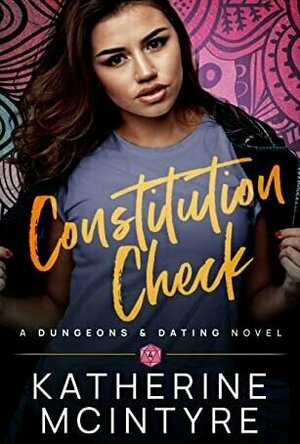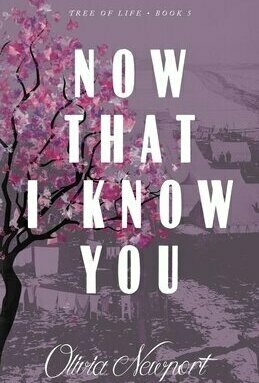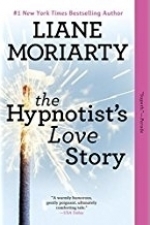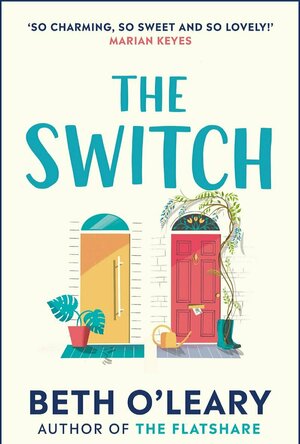Search
Search results
Debbiereadsbook (1650 KP) rated Constitution Check (Dungeons and Dating #4) by Katherine McIntyre in Books
Sep 24, 2022
i love this series!
Independent reviewer for Archaeolibrarian, I was gifted my copy of this book.
This is book 4 in the Dungeons & Dating book, and while not strictly necessary to have read the other three before this, I STRONGLY recommend you do. Not least because they are ALL five star reads, from me. But I would probably say read book 3, at least. Something happens in that book that leads into this one, and you get an inkling as to what Kelly is living through.
Ms McIntyre never ceases to amaze me, she can flip on a penny and it takes you a while to catch up with that little nugget of info, or this little comment that someone says. I have to slow my reading down to pay great attention, and I love that I have to.
Both Tabby and Kelly appear in previous books, although I couldn't place Tabby til there was something said here. (see above!)
Both girls are suffering in one way or another, but it takes a long time for them to open up to each other, to us. The clues are all there, they really are, but I didn't put the pieces together for Tabby, not straight away. I did for Kelly, because the signs were there in book 3.
Its not an easy read, given what Kelly went through, but it is extremely well written. Emotional reading, I had a tear or too. When Kelly finally lets Tabby in and vice versa, I cried, I really did.
Its steamy too! And while it IS steamy, it takes a back step, I think, to the emotions involved for these girls.
All the other pairings take part here, given as they all work together at the cafe, and we meet Eli, Tabby's cousin. He is one of the leads in the next book along with Arjun.
I read this in one sitting, stayed up way past my bedtime and was entirely unrepentant of that fact! I bloody loved it!
I love that McIntyre can flip from MM to MF and then to FF. Quite a skill to deliver each, but to be able to deliver them ALL?? Amazing. Please keep them coming!!
5 full and shiny stars
*same worded review will appear elsewhere
This is book 4 in the Dungeons & Dating book, and while not strictly necessary to have read the other three before this, I STRONGLY recommend you do. Not least because they are ALL five star reads, from me. But I would probably say read book 3, at least. Something happens in that book that leads into this one, and you get an inkling as to what Kelly is living through.
Ms McIntyre never ceases to amaze me, she can flip on a penny and it takes you a while to catch up with that little nugget of info, or this little comment that someone says. I have to slow my reading down to pay great attention, and I love that I have to.
Both Tabby and Kelly appear in previous books, although I couldn't place Tabby til there was something said here. (see above!)
Both girls are suffering in one way or another, but it takes a long time for them to open up to each other, to us. The clues are all there, they really are, but I didn't put the pieces together for Tabby, not straight away. I did for Kelly, because the signs were there in book 3.
Its not an easy read, given what Kelly went through, but it is extremely well written. Emotional reading, I had a tear or too. When Kelly finally lets Tabby in and vice versa, I cried, I really did.
Its steamy too! And while it IS steamy, it takes a back step, I think, to the emotions involved for these girls.
All the other pairings take part here, given as they all work together at the cafe, and we meet Eli, Tabby's cousin. He is one of the leads in the next book along with Arjun.
I read this in one sitting, stayed up way past my bedtime and was entirely unrepentant of that fact! I bloody loved it!
I love that McIntyre can flip from MM to MF and then to FF. Quite a skill to deliver each, but to be able to deliver them ALL?? Amazing. Please keep them coming!!
5 full and shiny stars
*same worded review will appear elsewhere

Forbidden Match (Perfect Match Agency #6)
Book
The Perfect Match Agency’s company policy is No dating in the workplace! Looks like Renn and...
Omegaverse MM Romance
Lindsay (1793 KP) rated Now That I Know You (Tree of Life #5) in Books
Mar 13, 2025
We have been reintroduced to Jillian and Nolan. Her father and I were introduced to her so-called fourth cousin, Cate Buttler, on her mother's side. We also know Drew is mentioned, who seems to be now dating Jillian.
How will Jillian feel about this new cousin from the Perisi family? Who is Cate Buttler, and is she related to Jillian Duffy? Cate seems to persist in Jillian helping her and understanding her, but she comes unannounced. Can Jillian help her?
The plot gets ticker as we get started. The book takes time to travel back to 1913, in Pueblo, Colorado, to begin the family history story. The book does go back to the present again. We will get this throughout, and it is interesting. We meet Carrick and Ela.
We are introduced to a few more characters in 1913. They are Caterina, her husband Geppetto, and her son Giuseppe (Peppy). We also got the name Salvatore as an uncle's name. We jump to September 19, 1913, and learn about Parisi's family history through the eyes of Caterina. When she reads about the strike, she starts to worry about her friend Chiara, who is sick with a child. Chiara's husband is a miner who works for a mining company. Will she bring her friend Chiara and her husband home to stay?
We also learn that Parisi worked for Carrick and Ela Kyps, the ranch owners, in 1913. But will they survive and bring home their friends? Caterina seems to Ela that she does not like the coming strike. They offer or ask her to go and get her friend Chiara. Will they find and bring them home?
Jillian is getting ready to head south to meet up with her Cate Butler, who says she is a cousin and asks what career Cate has and why she might or is asking for Jillian's help. Nolan is still home when she comes down to eat. Jillian wants to know if her dad won't be coming. He has to deal with Court and meetings. However, Drew will be meeting her. Nolan seems to be getting calls that he does not want his daughter to overhear. Jillian still wished he was coming with her. What is this call about, or about his court meeting in Denver? Will Jillian get clues about Cate Butler or any other clues about her mother's side of the family history?
How will Jillian feel about this new cousin from the Perisi family? Who is Cate Buttler, and is she related to Jillian Duffy? Cate seems to persist in Jillian helping her and understanding her, but she comes unannounced. Can Jillian help her?
The plot gets ticker as we get started. The book takes time to travel back to 1913, in Pueblo, Colorado, to begin the family history story. The book does go back to the present again. We will get this throughout, and it is interesting. We meet Carrick and Ela.
We are introduced to a few more characters in 1913. They are Caterina, her husband Geppetto, and her son Giuseppe (Peppy). We also got the name Salvatore as an uncle's name. We jump to September 19, 1913, and learn about Parisi's family history through the eyes of Caterina. When she reads about the strike, she starts to worry about her friend Chiara, who is sick with a child. Chiara's husband is a miner who works for a mining company. Will she bring her friend Chiara and her husband home to stay?
We also learn that Parisi worked for Carrick and Ela Kyps, the ranch owners, in 1913. But will they survive and bring home their friends? Caterina seems to Ela that she does not like the coming strike. They offer or ask her to go and get her friend Chiara. Will they find and bring them home?
Jillian is getting ready to head south to meet up with her Cate Butler, who says she is a cousin and asks what career Cate has and why she might or is asking for Jillian's help. Nolan is still home when she comes down to eat. Jillian wants to know if her dad won't be coming. He has to deal with Court and meetings. However, Drew will be meeting her. Nolan seems to be getting calls that he does not want his daughter to overhear. Jillian still wished he was coming with her. What is this call about, or about his court meeting in Denver? Will Jillian get clues about Cate Butler or any other clues about her mother's side of the family history?

Running with the Werewolf (Darkaway Island #1)
Book
Welcome to Darkaway Island: A destination resort for supernaturals. Where Monsters Come to Play! ...
Paranormal Romance Rom-Com
Rachel King (13 KP) rated Walking Dead (Walker Papers, #4) in Books
Feb 11, 2019
Normally I don't care for zombies in my fantasy literature - the ick factor is just too high for me. (I don't do horror movies, either.) This book is probably the first exception as Joanne disliked them as much as I do. I love that she now as a better sense of what she is doing with her shamanic abilities, and she has even studied a few things related to this so that she is better prepared for future needs. It seems to me that as Joanne better understands the mechanics of what she is doing, the better I, as the reader, can understand them, too.
At the beginning of the book Joanne is dating the mechanic she has nicknamed Thor. I really like the guy and how genuine and honest he is with her, but I feel sorry for him because I know that it is not him that Joanne really wants. She takes him for granted and does not give the relationship any real chance at surviving.
The mess with the cauldron is an interesting bit of folklore that ironically ties back to Ireland, where Joanne's mother comes from. I like also that it introduces some new characters, such as the medium Sonata, and brings back Suzanne Quinley from the first book. Suzanne has got some serious magic of her own, and the courage to use it wisely. This makes me wonder if the author couldn't give her a series of her own in the YA genre. My favorite part of the book is when Suzanne uses her future-seeing abilities and Joanne tunes in. Joanne gets to see all of her possible past, present, and future selves based on alternate choices she could have made throughout her life. This was absolutely fascinating for me because I am always wondering about the "what ifs" with the main characters of the books I read. How I wish more of the books I read would find a way to employ this tactic, heck I would not mind it in real life!
As for loose ends, there are two that really bug me. The first is the outcome of the annoying insurance adjuster, since he just seemed to fall of the radar at the end. The second is Captain Morrison and his ever-evolving relationship with Joanne. He plays a major part at the climax, but the reader does not get to see any sort of personal reaction on Morrison's behalf or his reaction to Joanne's new relationship status. I will just have to wait to see what happens in the next book, Demon Hunts (Walker Papers, Book 5).
At the beginning of the book Joanne is dating the mechanic she has nicknamed Thor. I really like the guy and how genuine and honest he is with her, but I feel sorry for him because I know that it is not him that Joanne really wants. She takes him for granted and does not give the relationship any real chance at surviving.
The mess with the cauldron is an interesting bit of folklore that ironically ties back to Ireland, where Joanne's mother comes from. I like also that it introduces some new characters, such as the medium Sonata, and brings back Suzanne Quinley from the first book. Suzanne has got some serious magic of her own, and the courage to use it wisely. This makes me wonder if the author couldn't give her a series of her own in the YA genre. My favorite part of the book is when Suzanne uses her future-seeing abilities and Joanne tunes in. Joanne gets to see all of her possible past, present, and future selves based on alternate choices she could have made throughout her life. This was absolutely fascinating for me because I am always wondering about the "what ifs" with the main characters of the books I read. How I wish more of the books I read would find a way to employ this tactic, heck I would not mind it in real life!
As for loose ends, there are two that really bug me. The first is the outcome of the annoying insurance adjuster, since he just seemed to fall of the radar at the end. The second is Captain Morrison and his ever-evolving relationship with Joanne. He plays a major part at the climax, but the reader does not get to see any sort of personal reaction on Morrison's behalf or his reaction to Joanne's new relationship status. I will just have to wait to see what happens in the next book, Demon Hunts (Walker Papers, Book 5).
b.Young (97 KP) rated The Hypnotist's Love Story in Books
May 26, 2018
Quick read (2 more)
The ending
Great writing
Contains spoilers, click to show
I read this book because it was picked by my Book Club for our June discussion. I typically do not read books in the romance genre and have never read a book by this author, Liane Moriarty.
The Hypnotist's Love Story was well written and the character development was excellent.
The book is told in two view-points, Ellen's in third person and Saskia's in first person. Suspense and mystery are woven throughout, albiet mildly, and it gives the book a less than romantic feel at some points
The story begins with Ellen, who is a rather sucessful hypnotherapis. She is in her late thrities and single. Although she is quite happy with her life, she longs to have a family of her own. Her past three long-term relationships were less than satisfying so she resorts to using a dating site on the internet to meet someone new.
Enter Patrick. A handsome land surveyor who owns his company and has an 8-year-old son, Jack. His past is much more complicated. He is a widower with an ex-girlfriend that has been stalking him for 3 years!
When Patrick tells Ellen about Saskia, his stalker, she is somewhat intrigued instead of frightened.
Even though Elln seems to be okay with the baggage of a dead wife and a stalker, Patrick and Ellen have a difficult time being a new couple falling in love and their relationship is strained from the get-go.
As Ellen and Patrick are mid-flight to a weekend getaway, Ellen realizes that she has allowed herself to divulge their location to Saskia unknowingly due to the fact that Saskia has been a client of Ellen's while using a false name.
When Ellen decides to reveal big news to Patrick, he does something completely unexpected and Saskia puts herself in the middle of it all.
As the stalking incidents escalate (they are never violent), Patrick's demeanor deteriorates and Ellen is put on edge.
Throughout the book, we learn the reasoning behind Saskia's stalking and by the end of the story, I felt almost sorry for her. Almost. Because through it all, she chose to do the things she did and threw out all other options to persue her failed relationship.
I am relieved to say that it does eventually end with a HEA. I only say that because although I was reading a romance novel and expected an HEA, the suspensful undertones of the book led me to think differently at times.
The Hypnotist's Love Story was well written and the character development was excellent.
The book is told in two view-points, Ellen's in third person and Saskia's in first person. Suspense and mystery are woven throughout, albiet mildly, and it gives the book a less than romantic feel at some points
The story begins with Ellen, who is a rather sucessful hypnotherapis. She is in her late thrities and single. Although she is quite happy with her life, she longs to have a family of her own. Her past three long-term relationships were less than satisfying so she resorts to using a dating site on the internet to meet someone new.
Enter Patrick. A handsome land surveyor who owns his company and has an 8-year-old son, Jack. His past is much more complicated. He is a widower with an ex-girlfriend that has been stalking him for 3 years!
When Patrick tells Ellen about Saskia, his stalker, she is somewhat intrigued instead of frightened.
Even though Elln seems to be okay with the baggage of a dead wife and a stalker, Patrick and Ellen have a difficult time being a new couple falling in love and their relationship is strained from the get-go.
As Ellen and Patrick are mid-flight to a weekend getaway, Ellen realizes that she has allowed herself to divulge their location to Saskia unknowingly due to the fact that Saskia has been a client of Ellen's while using a false name.
When Ellen decides to reveal big news to Patrick, he does something completely unexpected and Saskia puts herself in the middle of it all.
As the stalking incidents escalate (they are never violent), Patrick's demeanor deteriorates and Ellen is put on edge.
Throughout the book, we learn the reasoning behind Saskia's stalking and by the end of the story, I felt almost sorry for her. Almost. Because through it all, she chose to do the things she did and threw out all other options to persue her failed relationship.
I am relieved to say that it does eventually end with a HEA. I only say that because although I was reading a romance novel and expected an HEA, the suspensful undertones of the book led me to think differently at times.
Emma @ The Movies (1786 KP) rated Just Mercy (2019) in Movies
Jan 22, 2020
Having seen Clemency in October I felt like I was prepared for what Just Mercy might throw at me. I was not. The two films handle the death row scenario in very different ways and the storyline that runs alongside it gives you two very different experiences.
Based on a true story - when it comes to history this phrase can be a horrible thing, and when you realise that the events of Just Mercy are only actually dating back to the late 80s/early 90s, well that's kind of sickening, it doesn't feel like this should be something from my own lifetime.
In the lead role of Bryan Stevenson we have Michael B. Jordan. We see Stevenson from intern to established lawyer and yet he doesn't really make any notable progression. The person he is at the beginning isn't all that changed by the end. Jordan's performance is fine, nothing felt technically wrong about it but the consistency was completely off. Every time the character was brought face to face with prejudice and high emotions he managed to knock it out of the park, he was nervous, he was scared, he was devastated. In between those moments he was just there, his performance didn't hold any weight against anyone else's.
Jamie Foxx shows us that missing consistency as Walter McMillan. It felt like he was fully immersed in his character the whole time. There are shots where we're focused on him while other characters are talking and he's always attentive to them, you can see him assessing Stevenson in their meetings and it was fascinating to watch. Every moment was strong without the need for any additional motivation.
When we're inside the prison there are so many different things going on. The tension between the guards and inmates, and that extending to Stevenson is powerful and it's development through the film and the change in attitude was a nice one to see. But the camaraderie between the inmates was probably the thing that was the most affecting, the execution in this was surprisingly subtle but very moving.
Just Mercy has a strong message about the divide and prejudice in southern America and the justice system, it's a very strong reminder of how much has changed because of strong-willed people and how much still needs to change. While I might not watch this film again it was certainly something I enjoyed watching, as much as "enjoyed" feels like the wrong word to use.
Originally posted on: https://emmaatthemovies.blogspot.com/2020/01/just-mercy-movie-review.html
Based on a true story - when it comes to history this phrase can be a horrible thing, and when you realise that the events of Just Mercy are only actually dating back to the late 80s/early 90s, well that's kind of sickening, it doesn't feel like this should be something from my own lifetime.
In the lead role of Bryan Stevenson we have Michael B. Jordan. We see Stevenson from intern to established lawyer and yet he doesn't really make any notable progression. The person he is at the beginning isn't all that changed by the end. Jordan's performance is fine, nothing felt technically wrong about it but the consistency was completely off. Every time the character was brought face to face with prejudice and high emotions he managed to knock it out of the park, he was nervous, he was scared, he was devastated. In between those moments he was just there, his performance didn't hold any weight against anyone else's.
Jamie Foxx shows us that missing consistency as Walter McMillan. It felt like he was fully immersed in his character the whole time. There are shots where we're focused on him while other characters are talking and he's always attentive to them, you can see him assessing Stevenson in their meetings and it was fascinating to watch. Every moment was strong without the need for any additional motivation.
When we're inside the prison there are so many different things going on. The tension between the guards and inmates, and that extending to Stevenson is powerful and it's development through the film and the change in attitude was a nice one to see. But the camaraderie between the inmates was probably the thing that was the most affecting, the execution in this was surprisingly subtle but very moving.
Just Mercy has a strong message about the divide and prejudice in southern America and the justice system, it's a very strong reminder of how much has changed because of strong-willed people and how much still needs to change. While I might not watch this film again it was certainly something I enjoyed watching, as much as "enjoyed" feels like the wrong word to use.
Originally posted on: https://emmaatthemovies.blogspot.com/2020/01/just-mercy-movie-review.html

Deng Xiaoping: A Revolutionary Life
Alexander V. Pantsov and Steven I. Levine
Book
Deng Xiaoping joined the Chinese Communist movement as a youth and rose in its ranks to become an...
Kristy H (1252 KP) rated The Switch in Books
Jan 7, 2021
A touching look at love and loss
Leena Cotton's way to deal with life is losing herself in her work. But when she's forced to take a two-month sabbatical, her usual focal point is gone. So Leena comes up with a plan: she'll escape to her grandmother Eileen's house, a beautiful little cottage in the lovely, quiet village of Hamleigh, and Eileen will come and stay in Leena's flat in London. To Leena, this sounds perfect; her grandmother, after all, though nearly eighty, is newly single and looking for another chance at love. Where better to find it than in bustling London? But switching places isn't as easy as it seems. In Hamleigh, Leena learns her grandmother's shoes are hard to fill, having to plan a local festival and deal with nosy neighbors. Meanwhile, in London, Eileen has to get up-to-speed with online dating and the hustle and bustle of a busy city. But, all may not be lost for the Cotton women.
Oh this book. It's just absolutely lovely. I wasn't sure if the idea of a "swapping places" book would come across as silly or trite, but in O'Leary's deft hands, it's perfect. She gives us a beautiful story about healing after grief (Leena's sabbatical comes because she blows a presentation as she's dealing with the grief of losing her sister; Eileen, obviously, has lost her granddaughter). But it's also funny, sweet, and romantic. The sadness is woven in with hope and beauty. It's one of those rare books that can make you both cry and laugh.
Eileen and Leena--what can I say about these characters? They are so real! I identified, of course, with workaholic Leena, and you just want to go into the book and save her (though she doesn't need it) as she struggles with her sister's death, feeling abandoned by her own grieving mother after the loss, and getting her life back on track. And Eileen? She's a total trip. Finally free to find love again, she's a wonderful and spunky woman that you cannot help but root for. The supporting cast is absolutely excellent--Leena's friends and flatmates, combined with the townspeople of Hamleigh, make for some of the most memorable supporting cast I can remember in quite some time. They all fit together perfectly in the story.
Overall, I defy you not to fall for this tale. Eileen's quest for love. Leena's quest to find herself again. O'Leary gives us a beautiful gift in THE SWITCH. One of my favorite reads of the year. 4.5+ stars.
Leena Cotton's way to deal with life is losing herself in her work. But when she's forced to take a two-month sabbatical, her usual focal point is gone. So Leena comes up with a plan: she'll escape to her grandmother Eileen's house, a beautiful little cottage in the lovely, quiet village of Hamleigh, and Eileen will come and stay in Leena's flat in London. To Leena, this sounds perfect; her grandmother, after all, though nearly eighty, is newly single and looking for another chance at love. Where better to find it than in bustling London? But switching places isn't as easy as it seems. In Hamleigh, Leena learns her grandmother's shoes are hard to fill, having to plan a local festival and deal with nosy neighbors. Meanwhile, in London, Eileen has to get up-to-speed with online dating and the hustle and bustle of a busy city. But, all may not be lost for the Cotton women.
Oh this book. It's just absolutely lovely. I wasn't sure if the idea of a "swapping places" book would come across as silly or trite, but in O'Leary's deft hands, it's perfect. She gives us a beautiful story about healing after grief (Leena's sabbatical comes because she blows a presentation as she's dealing with the grief of losing her sister; Eileen, obviously, has lost her granddaughter). But it's also funny, sweet, and romantic. The sadness is woven in with hope and beauty. It's one of those rare books that can make you both cry and laugh.
Eileen and Leena--what can I say about these characters? They are so real! I identified, of course, with workaholic Leena, and you just want to go into the book and save her (though she doesn't need it) as she struggles with her sister's death, feeling abandoned by her own grieving mother after the loss, and getting her life back on track. And Eileen? She's a total trip. Finally free to find love again, she's a wonderful and spunky woman that you cannot help but root for. The supporting cast is absolutely excellent--Leena's friends and flatmates, combined with the townspeople of Hamleigh, make for some of the most memorable supporting cast I can remember in quite some time. They all fit together perfectly in the story.
Overall, I defy you not to fall for this tale. Eileen's quest for love. Leena's quest to find herself again. O'Leary gives us a beautiful gift in THE SWITCH. One of my favorite reads of the year. 4.5+ stars.
Dianne Robbins (1738 KP) rated Zoey's Extraordinary Playlist in TV
Apr 22, 2021 (Updated Apr 22, 2021)
The first season (4 more)
Song choices
Incorporation of songs into emotional scenes
Singing
Choreography
The First Season broke my heart.
Contains spoilers, click to show
The premise of the show is intriguing. Zoey goes to the hospital for an MRI of her brain and is given a pair of headphones to wear during the test since it is a bit noisy. The MRI technician says they have practically every song known to man downloaded on their system so she can play whatever music she wants. There is a power outage followed by a power surge and all the music that had been downloaded on the hospital's MRI machine gets transferred to her brain. The next morning, she awakens to music in her brain that she just can't shut off. She discovers that she can hear the songs people are singing inside their heads and hearts, hereafter known as heart songs, even though they aren't singing out loud and have no idea that anyone can hear them (or know what they're thinking by what song they've chosen.) Her newfound superpower causes complications in some ways but also helps her interpersonal relationships in other ways. Getting to know what's in people's hearts benefits her greatly with her father who is suffering from a rare neurological disorder that has rendered him speechless and unable to move or communicate. The superpower is her curse and her gift.
I love this show. It's sweet, heartfelt, exciting, funny, and evocative. It will make you laugh, it will make you cry, and it will make you sing along. Mary Steenburgen singing The Bee-Gee's How Can You Mend a Broken Heart will break your heart. Peter Gallagher's performance is understated and beautiful and believable. The relationship between him and Jane Levy's Zoey character is warm and loving. I'm at a time in my life where the health and mortality of my parents are at the forefront of my mind so the relationship between Zoey and her parents is what I focus on most. However, Zoey, being a single young lady in her late twenties is in the dating world and working in the male-dominated tech world, and those play a large part in the show, as well.
Had the show ended at season one, I would have been all right with that decision as that arc ended so beautifully.
With the second season comes more complications, conflicts, miscommunications, fun, drama, sweetness, and love. I'm still going to watch it but I think the first season was the highlight.
I love this show. It's sweet, heartfelt, exciting, funny, and evocative. It will make you laugh, it will make you cry, and it will make you sing along. Mary Steenburgen singing The Bee-Gee's How Can You Mend a Broken Heart will break your heart. Peter Gallagher's performance is understated and beautiful and believable. The relationship between him and Jane Levy's Zoey character is warm and loving. I'm at a time in my life where the health and mortality of my parents are at the forefront of my mind so the relationship between Zoey and her parents is what I focus on most. However, Zoey, being a single young lady in her late twenties is in the dating world and working in the male-dominated tech world, and those play a large part in the show, as well.
Had the show ended at season one, I would have been all right with that decision as that arc ended so beautifully.
With the second season comes more complications, conflicts, miscommunications, fun, drama, sweetness, and love. I'm still going to watch it but I think the first season was the highlight.






